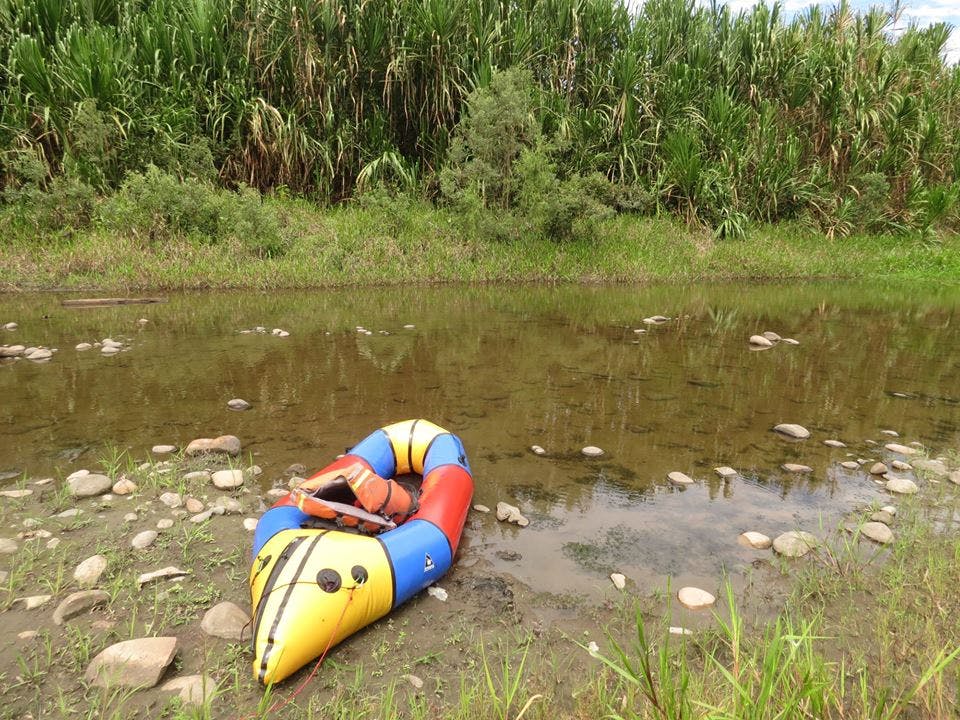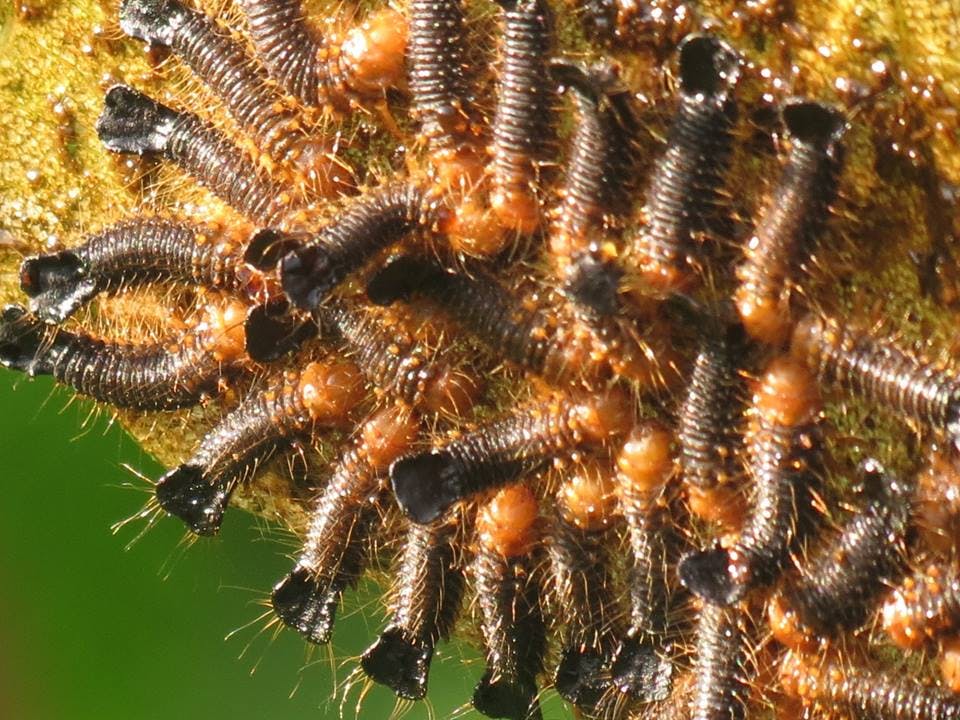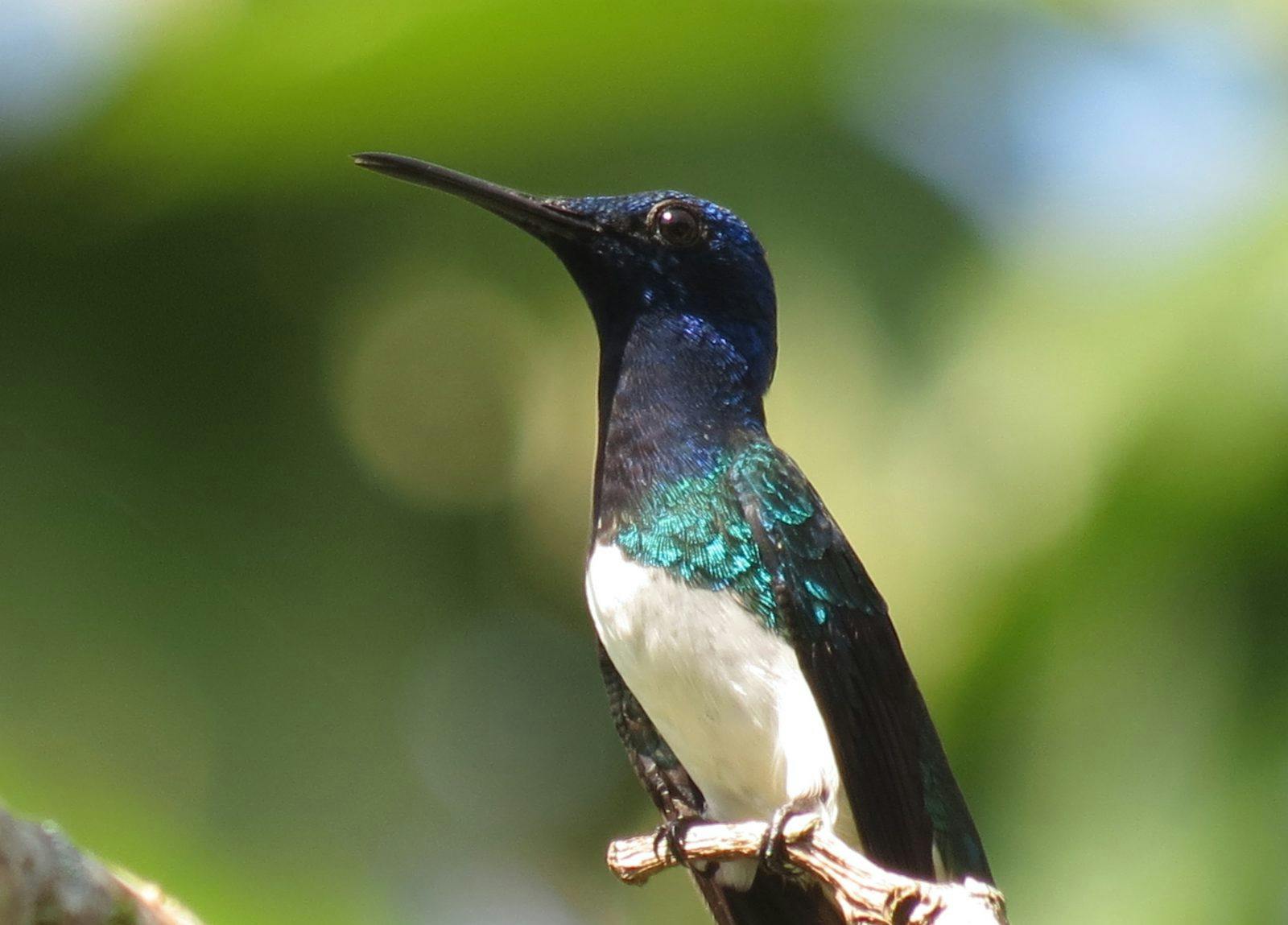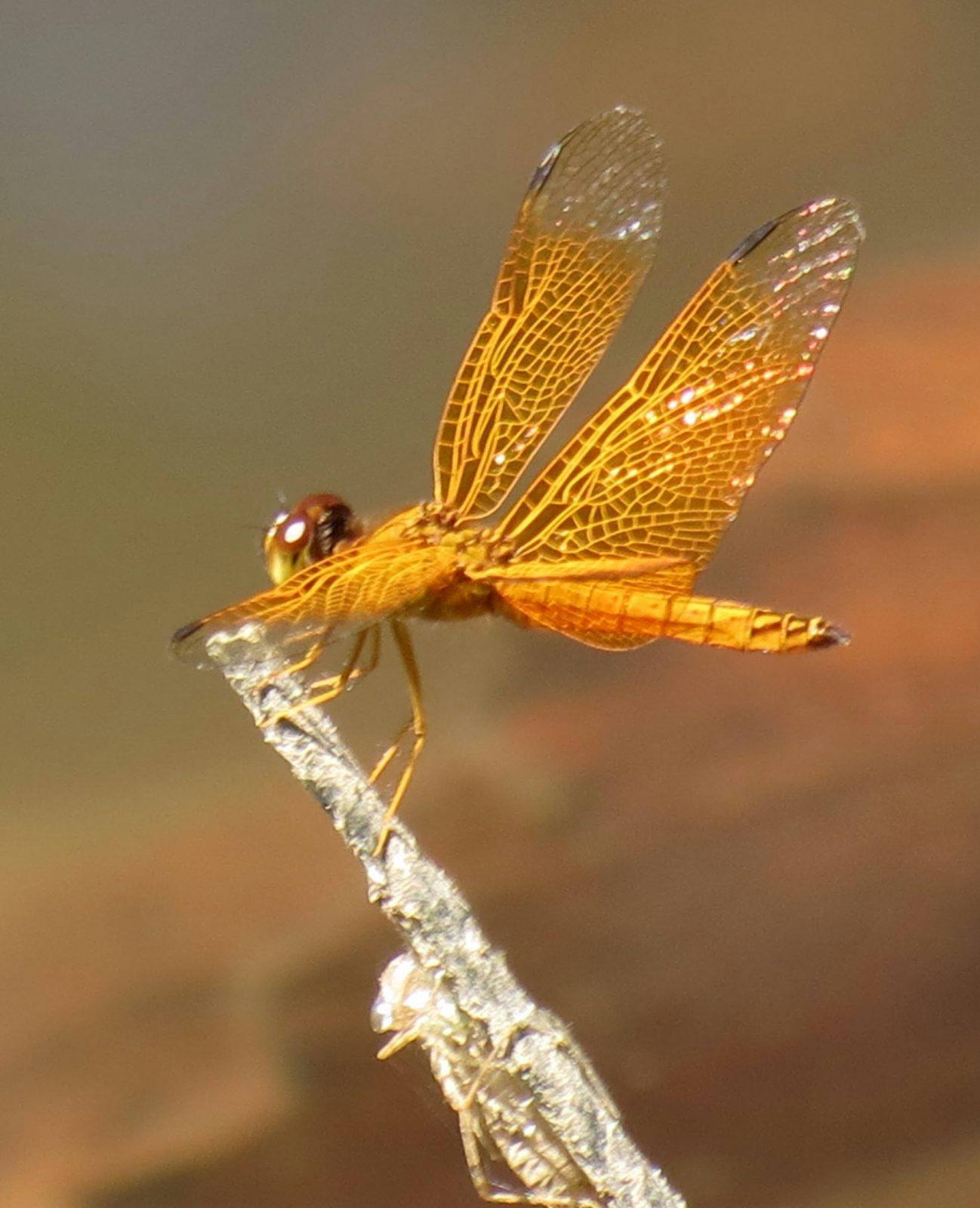"Biking-Birder" Seeks Green Birding World Record - Gets Face Dyed by Native Peruvians
“Biking Birder” Gary Prescott seeks Green Birding World Record, Part I
Story & photo by Gary Prescott.
Trepidation filled me as I inflated my colorful Alpacka packraft and the fast, shallow whitewater of the tributary river of the Amazon, the Madre de Dios, rushed past me. The long walk in extreme heat, across beaches of dry season exposed rounded rocks, after walking trails through banana plantations and tall bamboo groves, had been gruelling.
Bent double by the weight of a heavy rucksack, well packed with food, clothes and, of course, the Alpacka packraft, I had struggled all morning since leaving my bicycle with indigenous children at the Chaskawasi-Manu in the nearby Amazonian village of Salvacion; the bike being a gift for them no longer needed now that the four-month journey over The Andes from Lima was completed.
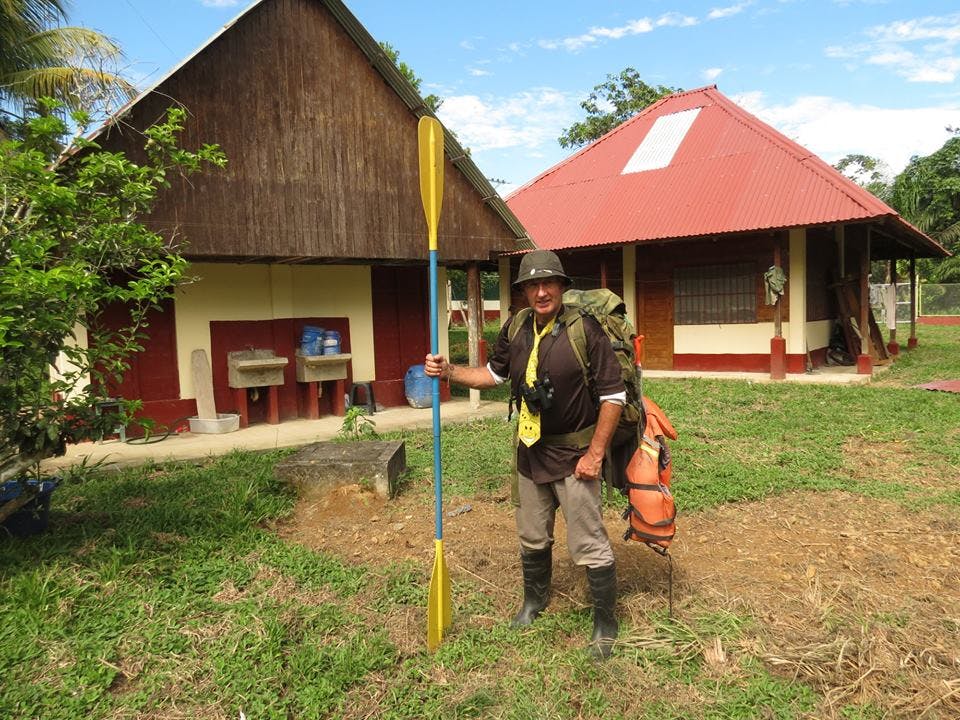
Bullet Ants, Botflies, and Caiman, Oh My!
The next stage of my six-month Peruvian adventure was about to begin. My Green Birding World record attempt, during which, whilst listing all bird species seen, no fossil fuel transport is allowed, was on track with 441 different birds seen. The World record total of 618, achieved by the incredible American Green birder, Dorian Anderson, was in sight but the most biodiverse place on the planet, The Manu National Park, was inaccessible except by packraft.
No roads cut their way into the dense lowland rainforest. Only the beautiful Madre de Dios river would give me access to the bird-rich wonderland that could propel my bird list to new heights and only an Alpacka packraft would take me down river in the purely green mode that was required.
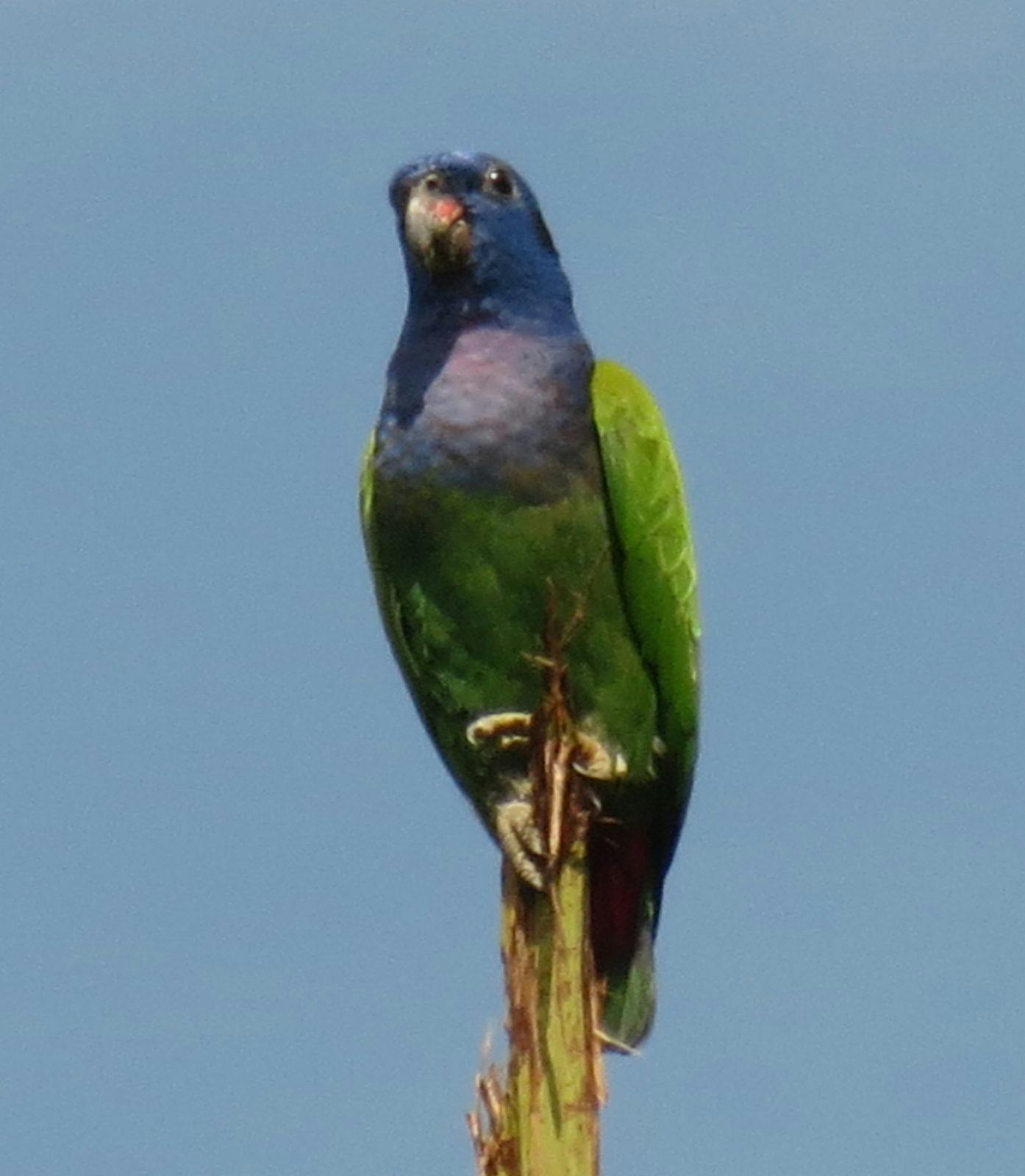
The fast water in front of me scared me, and yet I felt exhilarated. Ahead would be two months of Amazonian exploration, visiting native communities far from civilization. I’d confront dangers, and not just from the turbulent fast water sections of the river. I would encounter jungle animals–Capybara, Caiman, and large cats.
Insects in particular would provide constant companionship, be they blood suckers or butterflies. Bullet Ants with their intensely painful stings may provide an unwanted challenge. How to deal with the worst pain inflicted by any insect? I hoped I wouldn’t find out. Botflies may lay their eggs beneath my skin or have one of their eggs transmitted by a mosquito. Then it would be two weeks of waiting until the flesh-eating maggot could be removed.
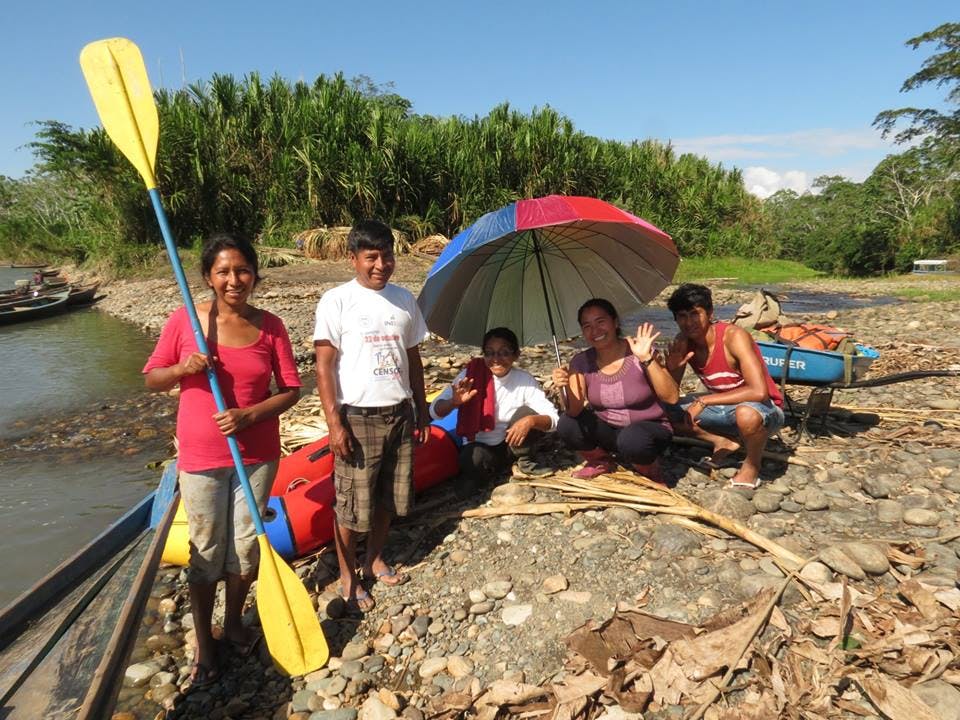
The Biking Birder Embarks on Adventure Via Packraft
Then there was the very real danger of being seen by non-contacted people. A forty-mile length of the river had such natives on the left bank, people who have never made contact with the outside world unbelievable in the present day, and maybe my plan of sticking to the right-hand side of the river might not allow me safe passage. Four ‘naked people’ had been seen just two weeks ago. They have reputation for violence.
With equipment safely stored away inside the inflatable tubes, and with my heavy military rucksack tightly tied to the front of the boat, my small cuddly toy mascot otter named Oscar riding atop, I waded a few yards out and carefully climbed into the packraft and pushed my way out onto the river.
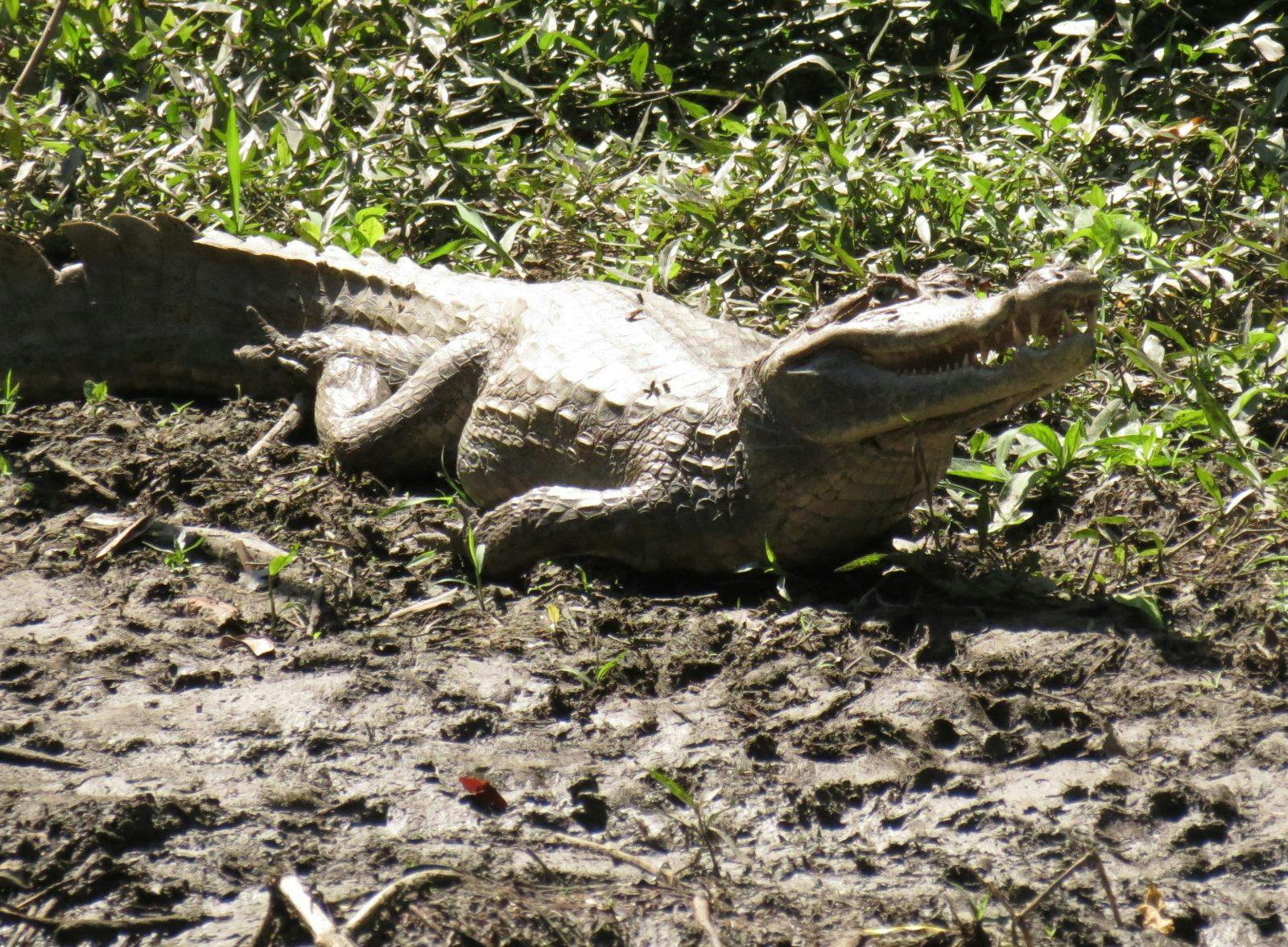
The fast water immediately took me downstream. The thrill of the first ride took away all fear and my emotions changed to excitement and hilarity as the packraft rode the waves superbly. Its magnificent manoeuvrability made all my worries dissipate.
Every minute spent in the packraft was a pleasure as the buoyancy allowed me to negotiate all waters. I found immense pleasure cruising between whitewater sections, along with time to admire the surrounding fifty-meter high trees that fringed the river margins.
Forest-clad hills to my left as I paddled deftly downstream gave way to expanses of flat rainforest covered lowlands. Huge islands covered with bamboo, rushes, and saplings caused navigation problems, but the rule of stay to the right to avoid the naked people was adhered to.
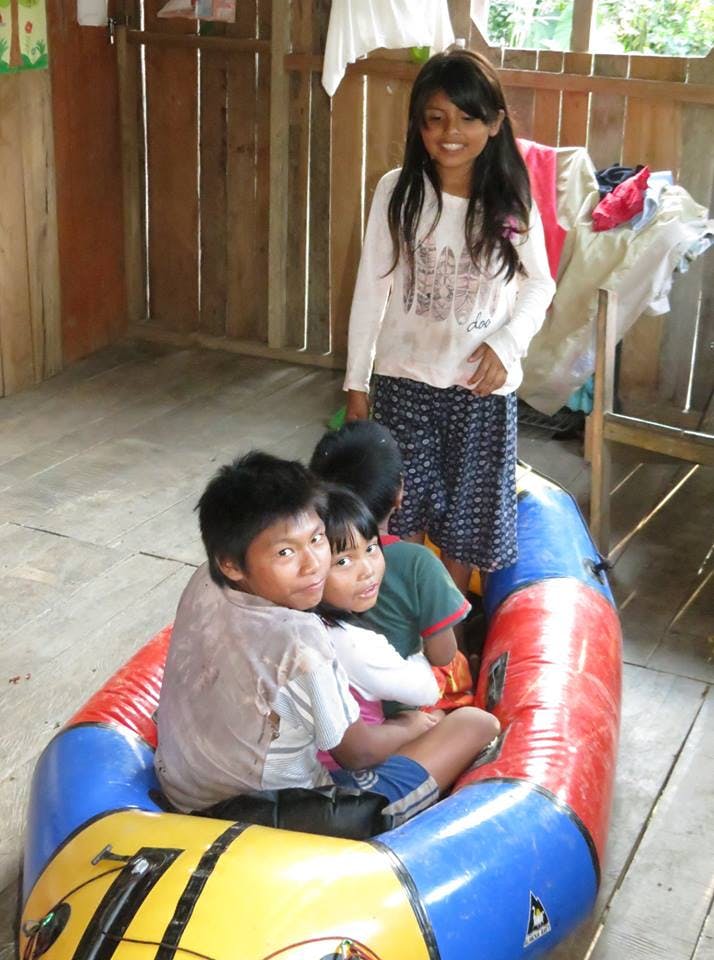
The Football Match
I spent days with the people of many native communities; Shipitieri, Paloata, and Diamante. With no detailed maps of the river being available, I found it difficult to locate these settlements. But finally finding the wonderful, incredibly beautiful village of Shipitieri was miraculous.
Paddling for around twenty-five miles since the last village, I thought that as the sun was sinking it must be about time that I searched the forest to find Shipitieri. So, after carefully packing away my packraft and after trudging through banana and coca plantations, I suddenly came across a football pitch!
A football match was in progress. As I suddenly appeared, every player stopped and stared at me, as if it were a scene from Close Encounters of the Third Kind. They then commenced to aggressively asking questions concerning who I was, what I wanted, and who had given me permission to visit. But this quickly gave way to very friendly banter, an offer of food, and a command that my Hennessy hammock must be erected in a shop.
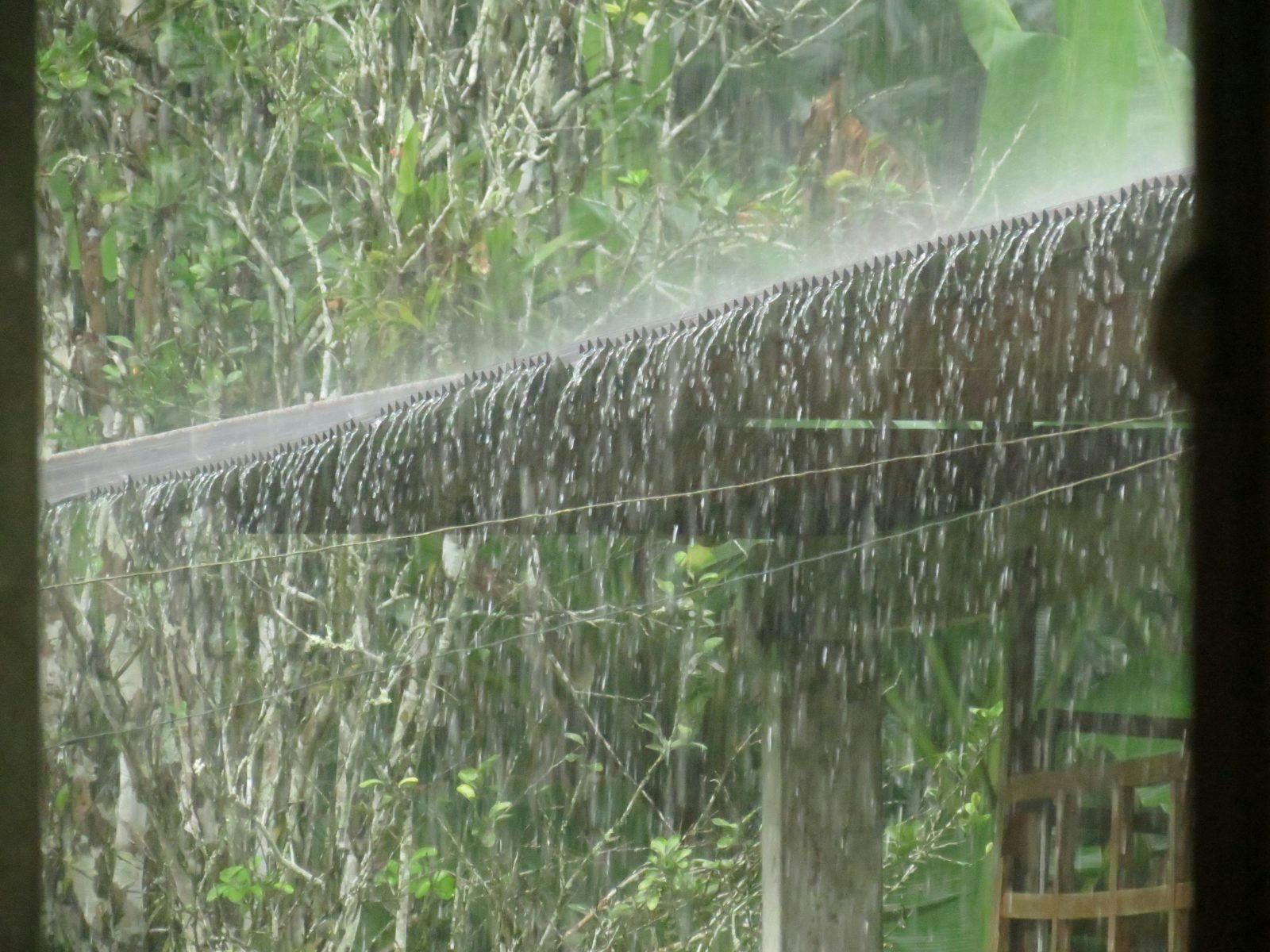
Storms, Floating Bamboo Attacks, & Other Dangers
And then I discovered Diamante, a long village that bordered the river from a high ridge for a kilometer or so without encroaching into the forest. It was a very welcome sight. Torrential rains with tumultuous thunderstorms had raised the level of the river by three meters in two hours, and I felt my life in serious danger. Trees had crashed into the river as the tall clay banks and cliffs eroded rapidly. They had floated by me as I struggled to find a place where I could safely get out of the river.
Each bank of the river was made up of five-meter-high cliffs. Bamboo poles started to appear amongst the growing amount of dangerous debris floating downstream. Bamboo with its large spikes would be particularly troublesome as any contact with the trees or the bamboo could pierce the packraft. A midstream island saved me.
Once found, my moment of terror abated, and I dragged the packraft as far as I could away from the still rising water and placed it over my head as the piercingly painful rain continued to fall.
With the river now in a dirty, muddy spate, I began to paddle once more, hoping to reach Diamante as I didn’t want to sleep on the island. With no trees from which to hang my hammock, the prospect of sleeping on the floor didn’t excite me.
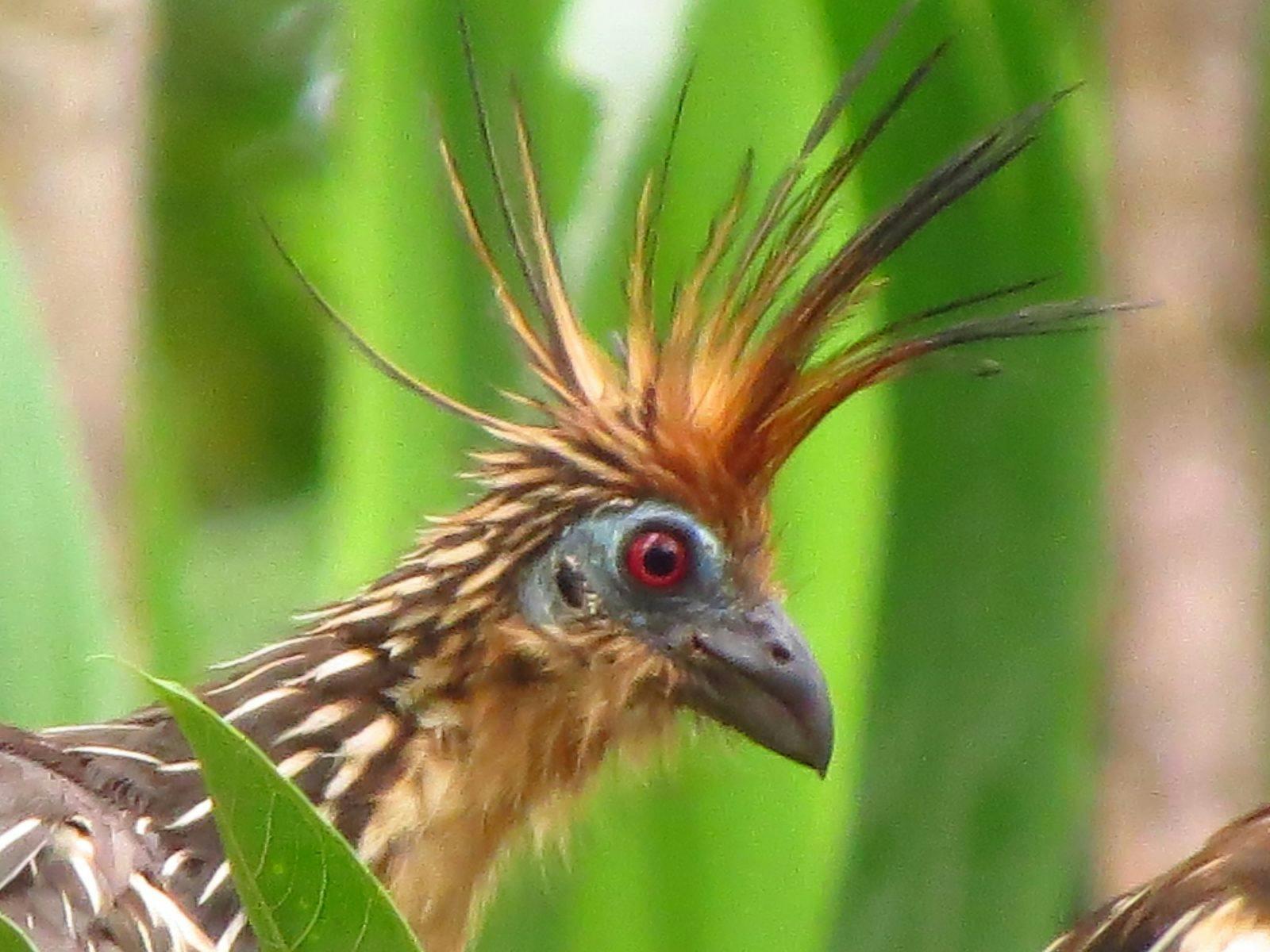
Maneuvering my craft, I avoided floating bamboo, branches, and even whole trees. To the front masses of branches from sunken dead trees confronted me; behind debris increased the danger threshold. Yet the speed in which one could spin about in a packraft made avoidance easy, even if the learning curve from such an unexpected situation was of necessity rapid.
Once in the village and with all equipment packed away in my large military-style rucksack, I walked up the concrete steps that led to the village itself. Trudging along, villagers stared, laughed and waved as I searched for a shop. Once found, I asked the proprietor, Janet, whether there was a room available for the night. Janet pointed to a nearby blue shack and told me that a stay would be twenty Soles, around six US Dollars.
I relaxed, feeling safe once more and spending sometime exploring the village and searching for birds, I bought some food and settled down for the evening with some local native people. I was fascinated in them and they likewise with me, so questions passed rapidly between us and laughter, smiles and sheer pleasure of company enjoyed replaced the fear, anxiety and worry of the day on the river in spate.
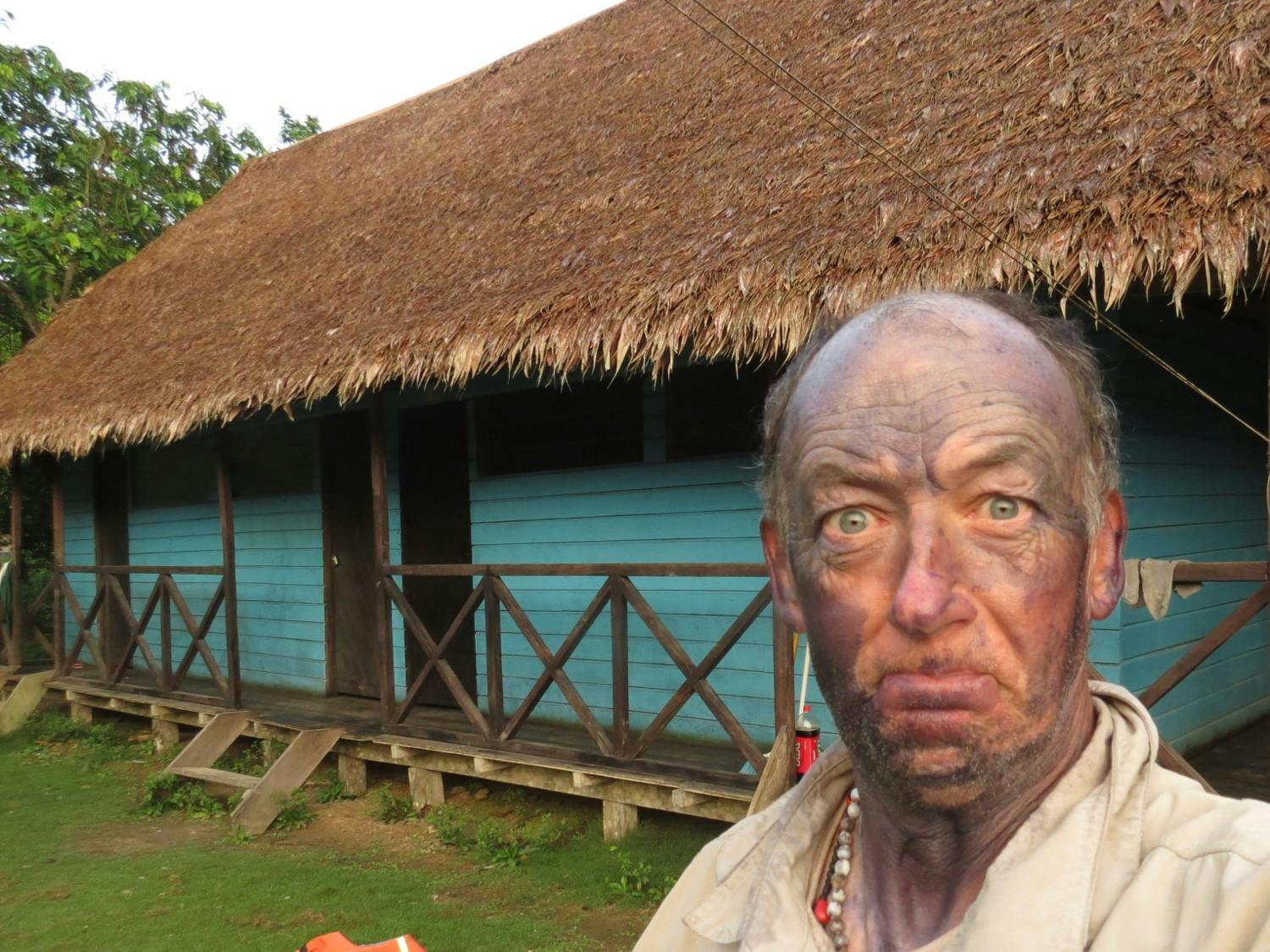
The Blue Faced Tourist of Diamante
Mosquitos! Masses of them hummed around my feet. Janet, together with other villagers, noticed that I my concern over the increasing number of bugs biting me despite repellent. She said she knew of something that would stop them. Always in awe at local people’s knowledge of medicinal plants, I waited eagerly to try whatever she suggested.
Janet got a bag of round fruits similar to large Kiwis. She mushed them up and mixed them with water in a large washing bowl. Once satisfied, she told me to splash this fruity liquid all over me and that the mosquitos would be deterred.
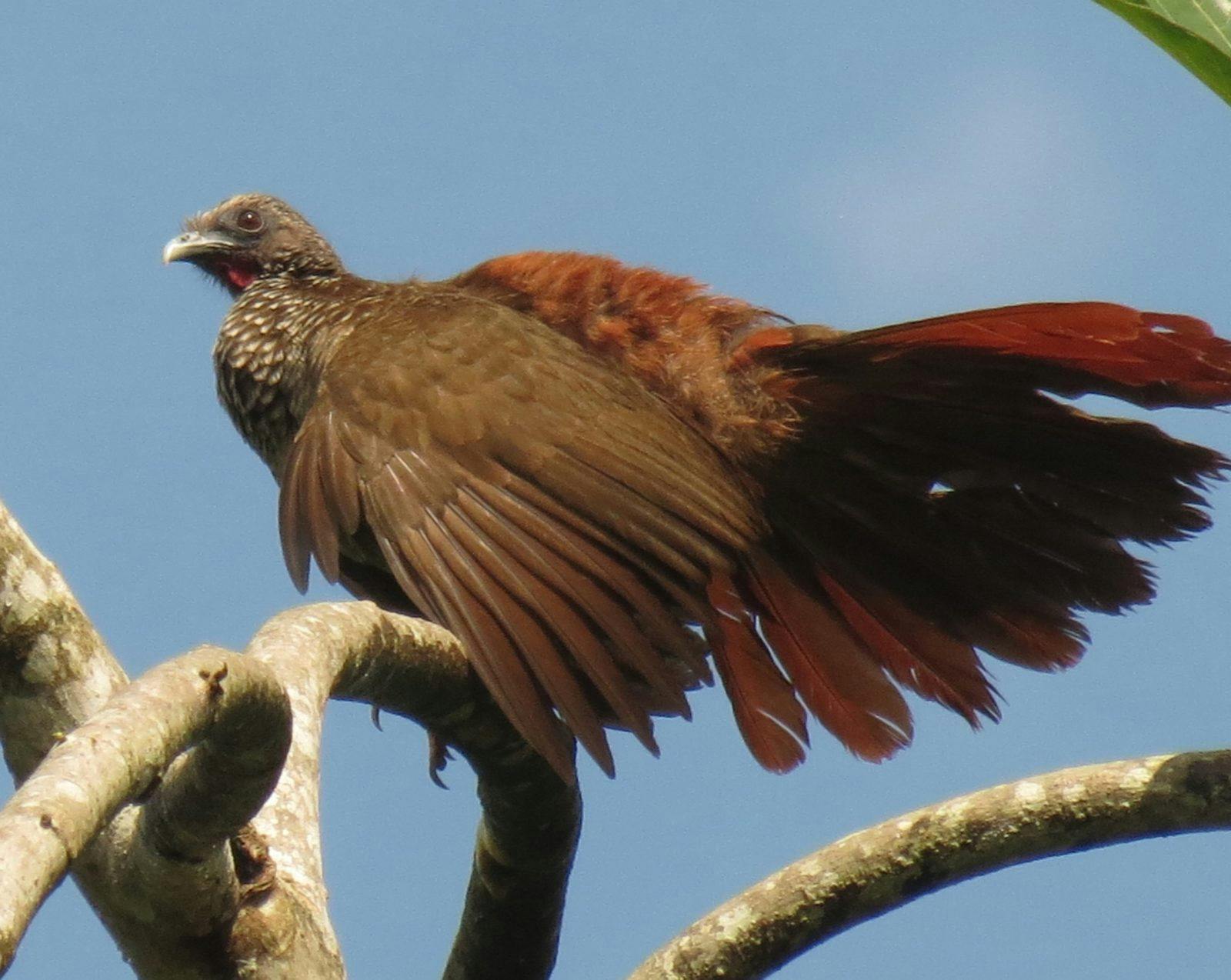
I heard more laughter from the villagers as I stripped off to my underpants, revealing pasty white flesh. My arms, head and calves might be dark brown from sunburn and exposure, but nothing else ever gets exposed. I dipped my hands into the murky water and splashed it all over me, letting it dry before dressing again. The evening passed pleasantly and the mosquitos seemed to ignore me. Thanks Janet.
Next morning, I soon found out that the thanks given to Janet the previous night was a tad premature. I had dressed in the dark in my shed with a bed after waking and rising before sunrise and on opening the door, I was greeted by a line of villagers, around twenty of them, standing waiting for my appearance.
As one they started to laugh, loud and long. I had no idea why until one of them took my camera and photographed me. I was bright blue! Overnight the watery mixture had reacted with my skin and now every part of me that had been watered was blue. I burst out laughing and on finding a broom, proceeded to chase Janet around the shop. They had got me good and proper. The tourist had been tricked and how I loved it.
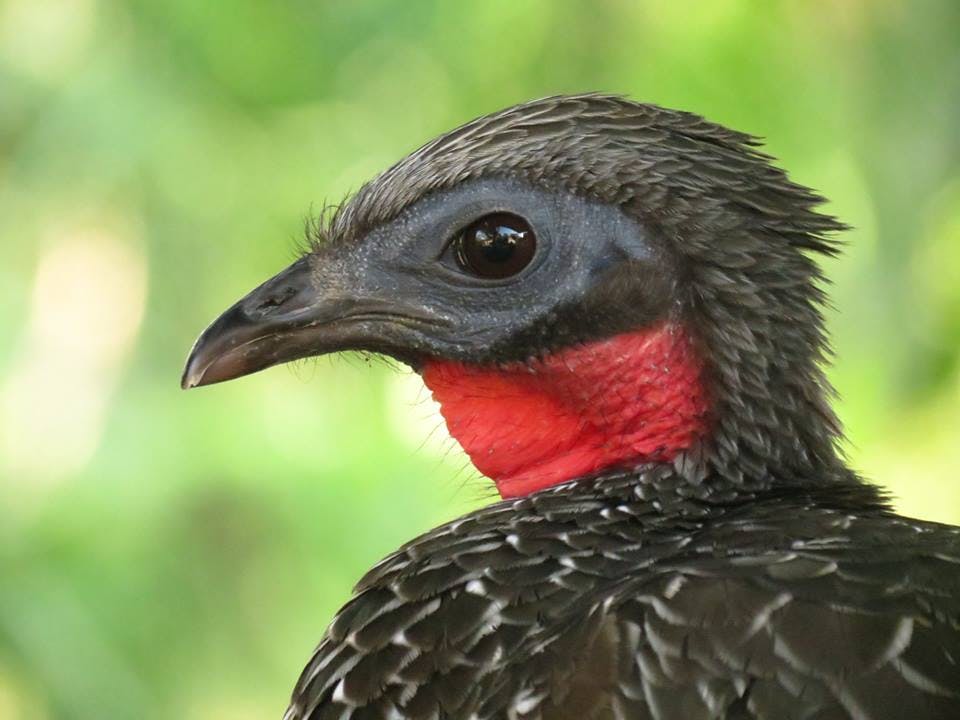
The Mythical Boca Manu
Later I went down to the river to see whether it would be safe to continue on my way. The color of the passing water and the large amount of debris floating by made me err on the side of caution. I had another day searching for birds; another day exploring the village environs.
Next day, despite the river still being high and colored, I did continue. I now felt confident that this wonderful packraft could take me wherever I wanted or needed to go. With lots of large islands causing splits in the wide river, making long stretches of white water that was so exciting to traverse.
I quickly reached the almost mythical Boca Manu, the next village, but only after hard cross-stream paddling. Between me and the village were a number of channels with very fast flowing water, interspersed with sunken and stuck dead tree branches.
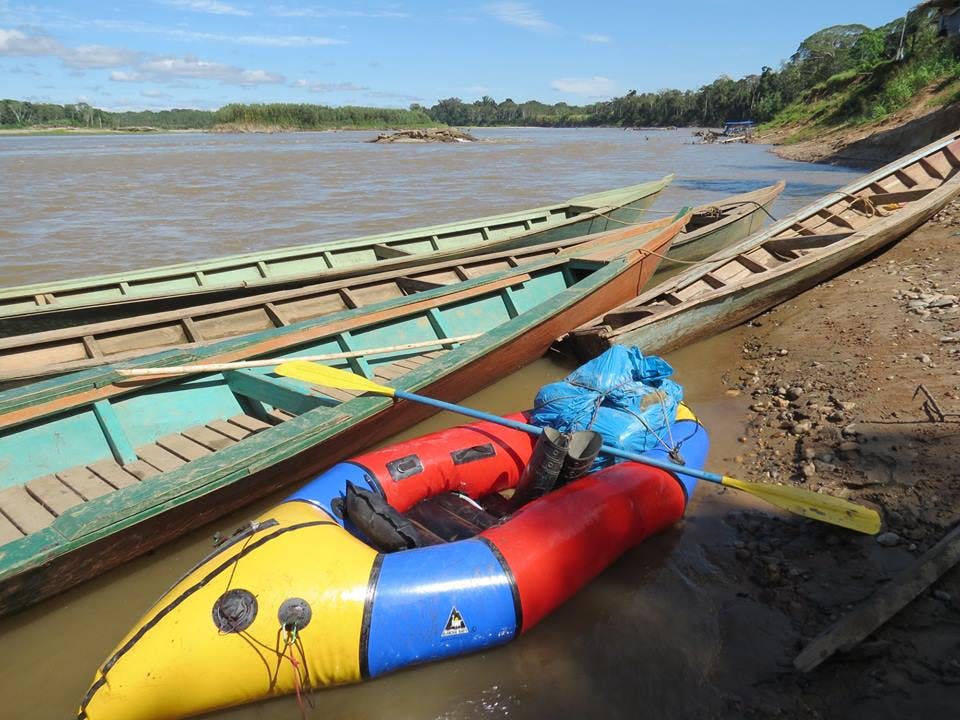
My tactic, once I identified three small wading birds along a muddy shore as Baird’s Sandpipers, an unexpected bonus bird species for the Big Green Birding Year List, was to walk along the shore upstream and then paddle like mad upstream, realizing that the strength of the water going downstream would carry me in that direction.
Hence, I crossed each section of fast water twirling the paddle like a dervish, diagonally reaching eddies caused by the sunken tree trunks. Villagers gathered on the riverbank by the village to watch my progress, and offered a round of applause when I finally reached them.
I had reached Boca Manu, one of the most remote villages in the world, only accessible by river with no airport or road to it! And a packraft brought me there. Now deep in the Manu, I found myself in a wonderful place for seeing the number of bird species that would propel me to Green Birding World Champion status. What an adventure and not even half way yet!
Stay tuned for more from the Biking Birder…
